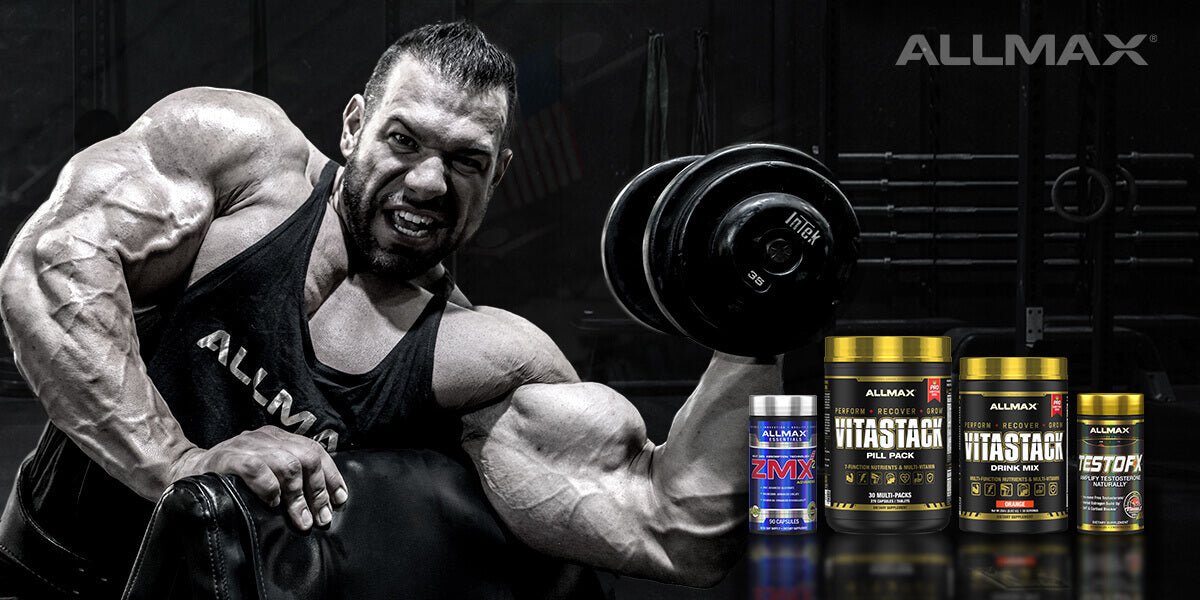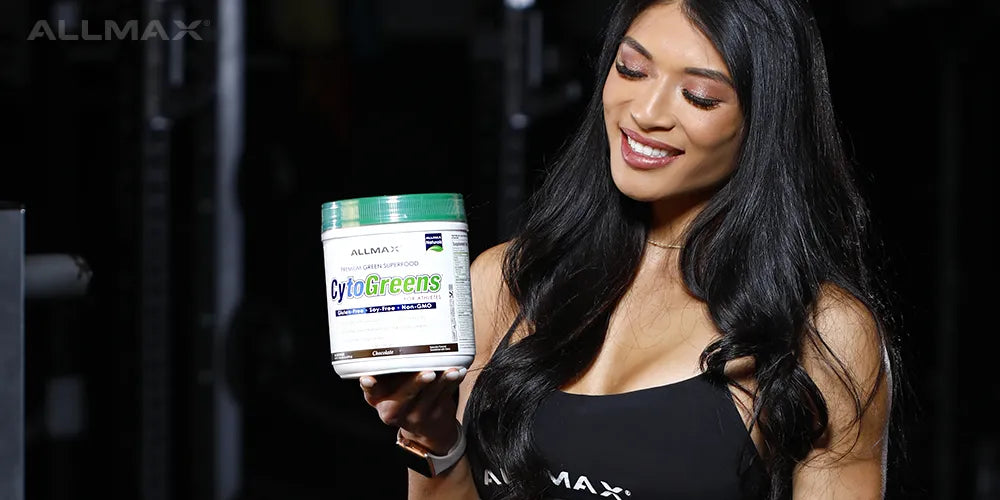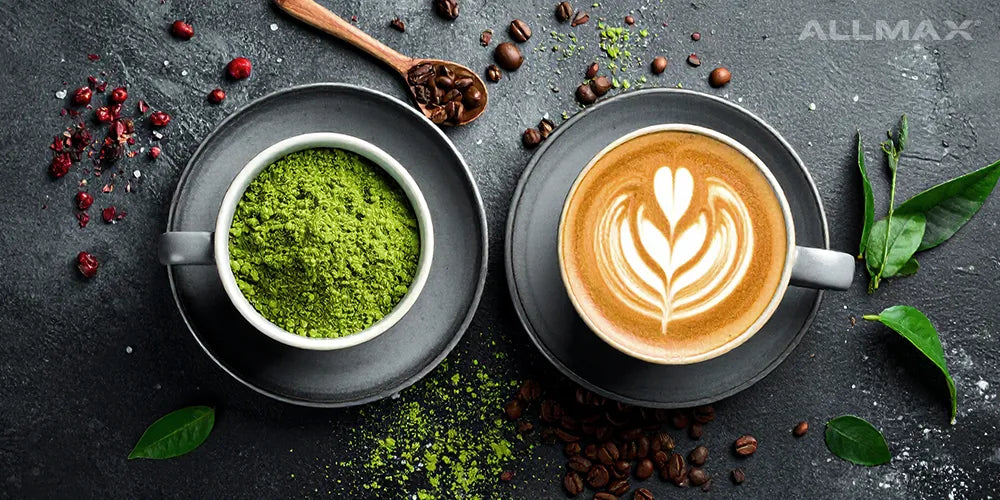Get Massive and Shredded Fast
Environmental pollution and skyrocketing stress levels along with the ever-increasing consumption of preservative-packed foods continue to negatively impact the health and wellbeing of many. One area of health that has taken a massive hit courtesy of these combined factors is hormonal status. For muscle hungry lifters this means less testosterone to fuel intensive training and enhance muscle growth. Of the many health concerns active men in the 30+ category face, naturally-diminishing testosterone levels would rank near the top – so much so that many test-deficient men have resorted to hormone replacement therapies (HRT) to keep health gains and gym progress steady. Even younger men are increasingly engaging in their own form of hormone therapy (steroids) to optimize this key anabolic hormone. Many and varied are the reasons why some will resort to any means to boost this most prized muscle builder. There are those who would like to maintain a hard and muscular physique into their fourth decade and beyond, whereas others may simply want to feel more energized and confident in their daily lives.21 Then there are some who desire greater sporting performances, faster recovery from the demands of arduous training, or less adipose around the waistline. By increasing testosterone levels to the higher end of the normal range of 280-1100 nanograms per deciliter (ng/dL), such folk will indeed achieve these health-bolstering outcomes, and more, to a far greater degree than might otherwise be the possible. However, with the drug route comes uncertain consequences in the form of various side effects and a reversal of results once such compounds are ceased. But there is a more effective way to boost testosterone, and keep it high. Besides regular training and stress minimization, the best way to ensure steady T increases is to keep nutrition on point via a diet heavy in testosterone-boosting foods and supplements. Consider the following an exhaustive compendium of the best testosterone (and health) boosting foods and supplements available today. Anyone – male or female – who would like a little more energy and muscle mass would be wise to include a broad selection of the following foods and supplements in their diet to stall natural testosterone decline and thrive well into their golden years.
Greater Testosterone Gains

TESTO-FX
Besides consuming a diet heavy in testosterone boosting foods, there is another way to make sure your test levels remain on point, one that is scientifically proven to dramatically increase bioavailable testosterone from 5.9% to 28.1%.: the revolutionary TESTO-FX. TESTO-FX has become the go-to test booster among savvy lifters the world over. This is due, in part, to its inclusion of high-dose and highly-bioavailable versions of Sensoril, a highly-concentrated form of the cortisol-lowering medicinal herb Ashwaganda, and TORODEX, a highly specialized form of Fenugreek extract.19 When combined, these two substances alone can produce measurable increases in muscle building testosterone. But TESTO-FX also contains NOVALDIM (3, 3-di-indolylmethathane), which locks up and blocks estrogen receptors to deactivate bad estrogen metabolites; Alpha Lipoic Acid and Myo-Inositol, which increase androgen receptor affinity to ensure a greater amount of free testosterone is captured and transported across cell membranes; and Saw Palmetto, which powerfully counters excessive DHT production, which is produced when natural testosterone is increased to higher than normal levels.9, 25 When used as prescribed, TESTO-FX can maximize testosterone production in the following five ways:- Blocks the catabolic hormone cortisol.
- Enhances the production of free testosterone (testosterone’s most biologically active form).
- Inhibits estrogen production (the main female sex hormone).
- Potentiates receptor sites which specifically encourage testosterone uptake into muscle cells.
- Has powerful anti-aromatase actions (thus preventing the conversion of testosterone to estrogen) and mitigates excessive DHT production (to provide an optimal balance of testosterone to DHT which in turn promotes anabolic benefits without any harmful side effects).
VITASTACK
Alongside the consumption of testosterone-specific foods, enhancing and maintaining high testosterone levels is best achieved with a wide variety of health-giving nutrients, a difficult task when consuming whole foods alone.3, 5, 23, 24 With its full listing of micronutrients and anabolic co-factors, VITASTACK fills the gap perfectly. Among its many individual nutrients, VITASTACK features a range of testosterone-boosting compounds including an ideal ratio of essential fatty acids, amino acids, magnesium, zinc, vitamin D and selenium.ZMX
Of the wide range of heavily-hyped test-boosters that have made the rounds in recent decades, few have delivered marked returns in lean muscle. One product, however, has made the grade time and again: ZMA. While still effective, this product has been improved upon to where its test-boosting benefits are greater than ever. Called ZMX2, this ALLMAX-produced testosterone enhancer par excellence is, when used in conjunction with TESTO-FX, considered to be the best T booster around. Formulated for maximum absorption and bioavailability, ZMX2 features three of the very best T enhancing ingredients for complete assimilation and full benefit: zinc (advanced gluconate) magnesium (advanced chelate), and vitamin B6 (an essential cofactor in the assimilation of zinc, the B6 in ZMX is the vastly more potent and active pyridoxal-5-phosphate from).12 Testosterone-Boosting Foods
Brazil Nuts
A good selection of nuts and seeds should comprise a good part of any healthy diet. There is however one type of nut that is especially beneficial for bodybuilders seeking to upgrade their mass gains. Containing a good source of antioxidants, great for heart, brain and thyroid function and beneficial in lowering inflammation and blood sugar levels, the Brazil nut remains one of the very best of the superfoods. Brazil nuts are also believed to be conducive to testosterone-boosting due in large part to their high selenium content.11, 22 A trace mineral that’s difficult to obtain in nutritionally-restricted diets, selenium is nevertheless crucial to health and wellbeing and it also performs an important role in T formation. But don’t overdo it as selenium can be toxic when taken in excess (aim for 55 micrograms per day).Cruciferous Vegetables
Broccoli, cauliflower, Brussels sprouts and cabbage – the major cruciferous vegetables – are essential for improving health and providing a lower calorie means to boosting energy. Uniquely, these vegetables also help to lower the ‘anti testosterone’ hormone estrogen through a compound called indole-3 carbinol that is converted into a form of estrogen more suitable for the male body.28 It’s through this conversion that testosterone levels can be better balanced and regulated.Eggs
Like beef, eggs remain a high-protein staple for many a hard training lifter. The yolks, specifically, contain high amounts of HDL cholesterol, a precursor to all sex hormones, including testosterone.12, 13 Egg yolks also feature the most important of the T boosting vitamins: D. Without a varied diet – especially one absent of eggs – vitamin D levels may be difficult to maintain, which may in turn cause testosterone levels to plummet. By taking a reputable vitamin supplement along with at least two whole eggs per day, D levels, and consequently T levels, can be optimally balanced. The extra high protein content of eggs also boosts testosterone-de-activating hormones to make available more testosterone for muscle building.Garlic
Though better known for scaring away vampires and social vampires via bad breath, garlic is a verifiable superfood with numerous health-giving properties. Chief among these properties, for hard-training bodybuilders, is testosterone production. With its cortisol-lowering compound allicin, garlic frees up testosterone to perform its muscle-building magic. To unlock its multifarious health benefits, garlic is best consumed raw (perhaps added to salad or mixed into a shake)Ginger
The ginger root is a nutritional powerhouse that’s been shown to benefit health on a great many levels. As well as boosting antioxidant status to enhance immunity and possessing anti-inflammatory, pain reduction and blood sugar lowering benefits, ginger has also been proven to increase testosterone levels by up to 17.7 percent, making it a key element in any good T-boosting plan.14, 16 Add it to shakes and smoothies to T-ransform your physique.Green Leafy Vegetables
Though less readily associated with heavy training and muscle gains when compared to other nutritionally-beneficial foods, vegetables such as spinach, Swiss chard, and kale can pack a tremendous muscle-building wallop, specifically when we consider their ability to increase the coveted T. This is down to such foods being packed full of valuable vitamins and minerals and being especially high in the key testosterone-producing micronutrient magnesium.10Honey
Honey is another power-packed food with multiple health properties. Mechanistically it’s believed to increase serum testosterone levels by enhancing the production of luteinizing hormone and the viability of the Leydig cells crucial to T formation (specifically, it reduces oxidative damage in these cells).4 Honey also enhances StAR gene expression and inhibits aromatase activity in the testes (a protein encoded by StAR gene plays a key role in the acute regulation of steroid hormone synthesis). Finally, honey contains boron, a key testosterone precursor mineral. Choose a quality honey for superior results: for example, a high-grade manuka version.Healthy Oils
Fat’s key role in testosterone production has been noted elsewhere in this article. However, what was not mentioned is the valuable contribution of the ‘healthy oils’ in further bolstering T levels. Here, two oils are of particular importance: omega 3 fish oils and extra virgin olive oil. While omega 3s have been shown to enhance health more generally and by implication improve T status, those who regularly consume olive oil (for example, as part of the famed Mediterranean Diet) may experience an increase in luteinizing hormone, which stimulates cells in the testes to produce more testosterone.20 If you wish to switch up your fats to experience further unique health benefits, alternate avocado and coconut oils with fish and olive oils.Oysters
Traditionally renowned for their libido-enhancing properties, oysters are nowadays increasing cited as testosterone boosting powerhouses. With their unorthodox texture and acquired taste, oysters can take a bit of getting used to and may be one of the more unorthodox ways to increase T levels. However, with their rich complement of trace minerals and star players including zinc (six oysters provide a whopping 32 mg of this key mineral), the mighty mollusc remains an effective way to power-up our most coveted muscle-building hormone.Pomegranates
Fuelling up on high-sugar juices is typically frowned upon by those seeking a ripped, muscular appearance. However, there is one juice which may be the exception to this rule. In addition to lowering blood pressure and improving mood and mental wellbeing, promegranate juice has also been shown to increase testosterone production.1 Add 300mls to your post workout shake (where its sugar content is less likely to be converted to fat) and reap the T boosting benefits of this unheralded muscle-builder.Red Meat
If you are looking for the perfect food for muscle building, training energy and, yes, testosterone production, look no further than red meat: beef and venison being superior sources.2 Firstly, a 100g piece of raw ground beef provides 32 per cent of a one’s recommended daily intake of zinc, a major catalyst for testosterone production, along with high levels of vitamin D, another essential T booster.7, 8, 15, 17, 18 In addition, red meat contains ample saturated fat, an undervalued precursor to testosterone formation, and more creatine than any other food, making it great for increasing anaerobic endurance when training with heavy weights (high training intensity being heavily correlated with testosterone production).27 However, be aware: although a meat-free diet can lower testosterone by up to 14%, the saturated fat found in beef may cause T levels to dip if consumed in excess. So, to have your saturated fats and eat them too, pick leaner cuts or side with the naturally leaner venison.Tuna
A low calorie, protein-rich bodybuilding staple, tuna has been building muscle for decades and has a well-deserved reputation for helping lifters achieve low bodyfat levels while preserving maximum size. With its copious complement of vitamin D, greater T production can now be added to tuna’s list of positive gym-enhancing attributes.17, 26 Be sure, however, to restrict tuna consumption to 3-4 times per week to minimize its mercury content. .Health Tip: Limit Stress
Negative stress remains a major factor in decreased testosterone production. This deleterious effect can be largely traced to the role stress plays in elevating cortisol levels.19 In fact, in a vicious feedback loop, poor testosterone formation may, in itself, contribute to greater stress levels and in turn more catabolic cortisol, which can cause testosterone levels to drop even lower. While beneficial to a small extent, cortisol, when it becomes chronic, can derail both fat burning and muscle-building, making our goal of a better-performing and better-looking body all but impossible to achieve.
Click Here to Get Your Testo Boosting Diet and Workout Plan
References
- Al Dujiali, E. et al. (2012). Pomegranate juice intake enhances salivary testosterone levels and improves mood and well-being in healthy men and women. Society for Endocrinology BES 2012 18 – 22 Mar
- Afeiche, M. C. et al. (2014). Meat intake and reproductive parameters among young men. Epidemiology (Cambridge, Mass.), 25(3), 323–330.
- Akmal, M. et al. (2006). Improvement in human semen quality after oral supplementation of vitamin C. J Med Food. 9(3):440‐442.
- Banihani S. A. (2019). Mechanisms of honey on testosterone levels. Heliyon, 5(7), e02029.
- Bishop, D.T. et al. (1988). The effect of nutritional factors on sex hormone levels in male twins. Genet Epidemiol. 1988;5(1):43‐59.
- Bélanger, A. et al. (1989). Influence of diet on plasma steroids and sex hormone-binding globulin levels in adult men. J Steroid Biochem. 32(6):829‐833.
- Bischoff-Ferrari, H.A. et al. (2008). Additive benefit of higher testosterone levels and vitamin D plus calcium supplementation in regard to fall risk reduction among older men and women. Osteoporos Int.19(9):1307‐1314.
- Braun, A. et al. (2011). Association of low serum 25-hydroxyvitamin D levels and mortality in the critically ill. Crit Care Med. 39(4):671‐677.
- Capasso, I. et al. Combination of inositol and alpha lipoic acid in metabolic syndrome-affected women: a randomized placebo-controlled trial. Trials. 2013; 14: 273.
- Cinar, V. et al. (2011). Effects of magnesium supplementation on testosterone levels of athletes and sedentary subjects at rest and after exhaustion. Biol Trace Elem Res. 140(1):18-23.
- Domosławska, A. et al. (2019). Improvement of Sperm Motility Within One Month Under Selenium and Vitamin E Supplementation in Four Infertile Dogs with Low Selenium Status. J Vet Res. Jun 12;63(2):293-297.
- Eacker, S. M. et al. (2008). Hormonal regulation of testicular steroid and cholesterol homeostasis. Molecular endocrinology (Baltimore, Md.), 22(3), 623–635.
- Freedman, D.S. et al. (1991). Relation of serum testosterone levels to high density lipoprotein cholesterol and other characteristics in men. Arterioscler Thromb. Mar-Apr;11(2):307-15.
- Khaki, A. et al. (2012). Treatment Effects of Onion (Allium cepa) and Ginger (Zingiber officinale) on Sexual Behavior of Rat after Inducing an Antiepileptic Drug (lamotrigine). Balkan medical journal, 29(3), 236–242
- Kilic, M. et al. (2006). The effect of exhaustion exercise on thyroid hormones and testosterone levels of elite athletes receiving oral zinc. Neuro Endocrinol Lett. 27(1-2):247‐252.
- W. A. et al. (2012). The effect of Ginger on semen parameters and serum FSH, LH & testosterone of infertile men. The Medical Journal of Tikrit University Volume 18- 2 ج2, Issue 182, Pages 322—329
- Pilz, S. et al. (2011). Effect of vitamin D supplementation on testosterone levels in men. Horm Metab Res. 43(3):223‐225.
- Prasad, A.S. et al. (1996). Zinc status and serum testosterone levels of healthy adults. Nutrition.12(5):344‐348.
- Rosmond, R. et al. (1998). Stress-related cortisol secretion in men: relationships with abdominal obesity and endocrine, metabolic and hemodynamic abnormalities. J Clin Endocrinol Metab. 83(6):1853‐1859.
- Risso, A. et al. (2016). Effect of Long-Term Fish Oil Supplementation on Semen Quality and Serum Testosterone Concentrations in Male Dogs. International journal of fertility & sterility, 10(2), 223–231.
- Srinivas-Shankar, U. et al. (2010). Effects of testosterone on muscle strength, physical function, body composition, and quality of life in intermediate-frail and frail elderly men: a randomized, double-blind, placebo-controlled study. J Clin Endocrinol Metab. 95(2):639‐650.
- Safarinejad, M.R. et al. (2009). Efficacy of selenium and/or N-acetyl-cysteine for improving semen parameters in infertile men: a double-blind, placebo controlled, randomized study. J Urol. Feb;181(2):741-51.
- Umeda, F. et al. (1982). Effect of vitamin E on function of pituitary-gonadal axis in male rats and human subjects. Endocrinol Jpn. 29(3):287‐292.
- Vani, K. et al. (2012). Clinical relevance of vitamin C among lead-exposed infertile men. Genet Test Mol Biomarkers. 16(9):1001‐1006.
- Wankhede, S. et al. (2015). Examining the effect of Withania somnifera supplementation on muscle strength and recovery: a randomized controlled trial. J Int Soc Sports Nutr. Nov 25;12:43.
- Wang, T. J. et al. (2008). Vitamin D deficiency and risk of cardiovascular disease. Circulation, 117(4), 503–511.
- Wang, C. et al. (2005). Low-fat high-fiber diet decreased serum and urine androgens in men. J Clin Endocrinol Metab. Jun;90(6):3550-9.
- Zeligs, M., A. (1998). Diet and estrogen status: the cruciferous connection. Journal of Medicinal Food, 1(2), 67-82.



